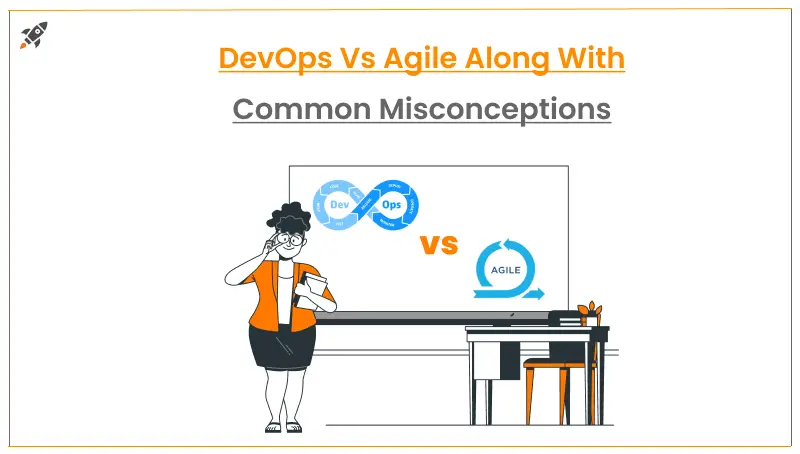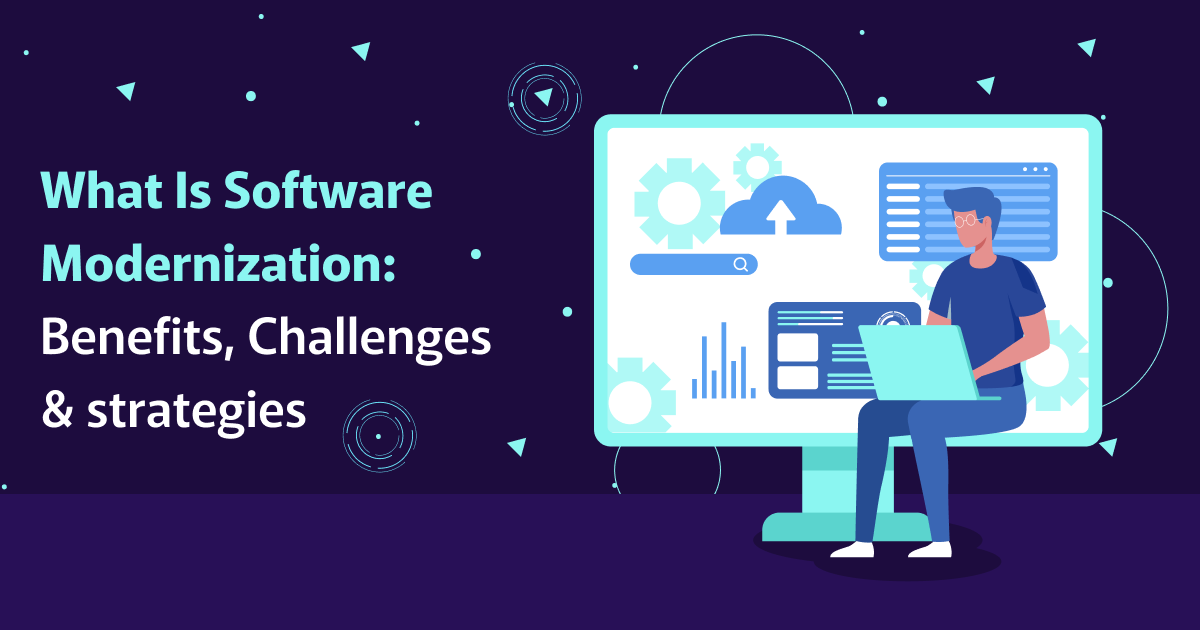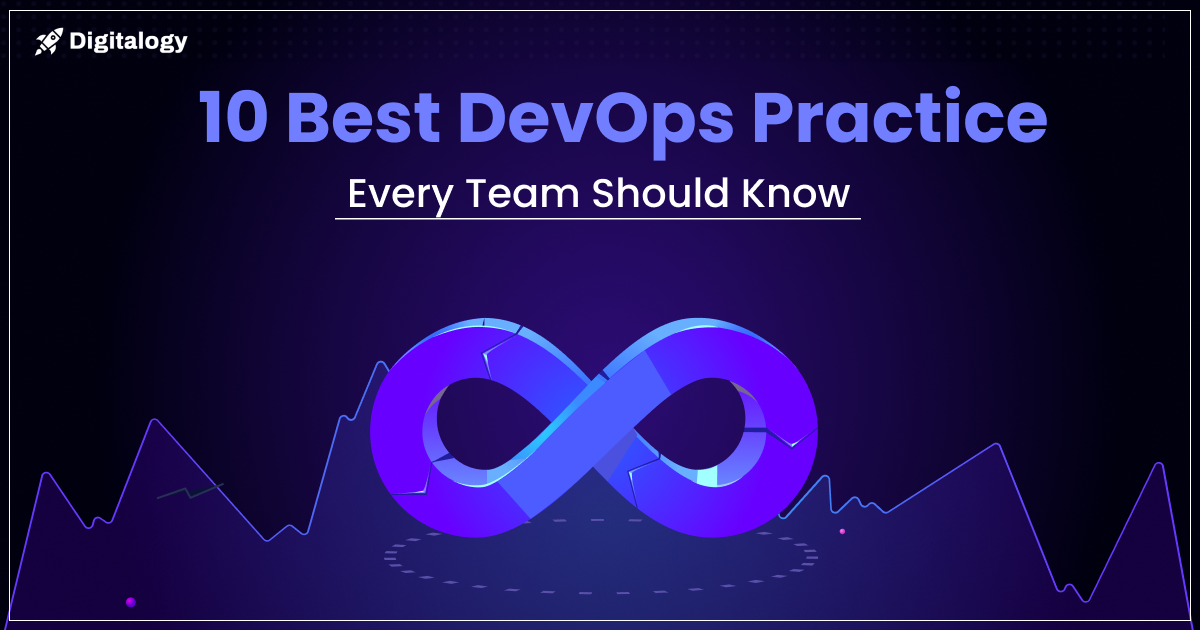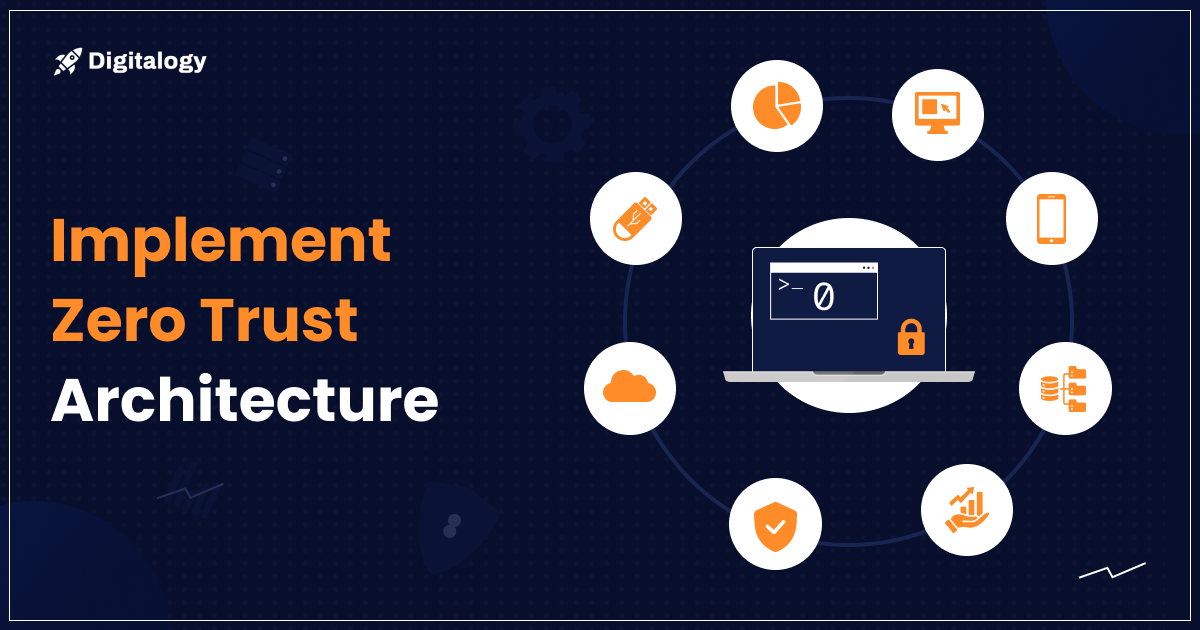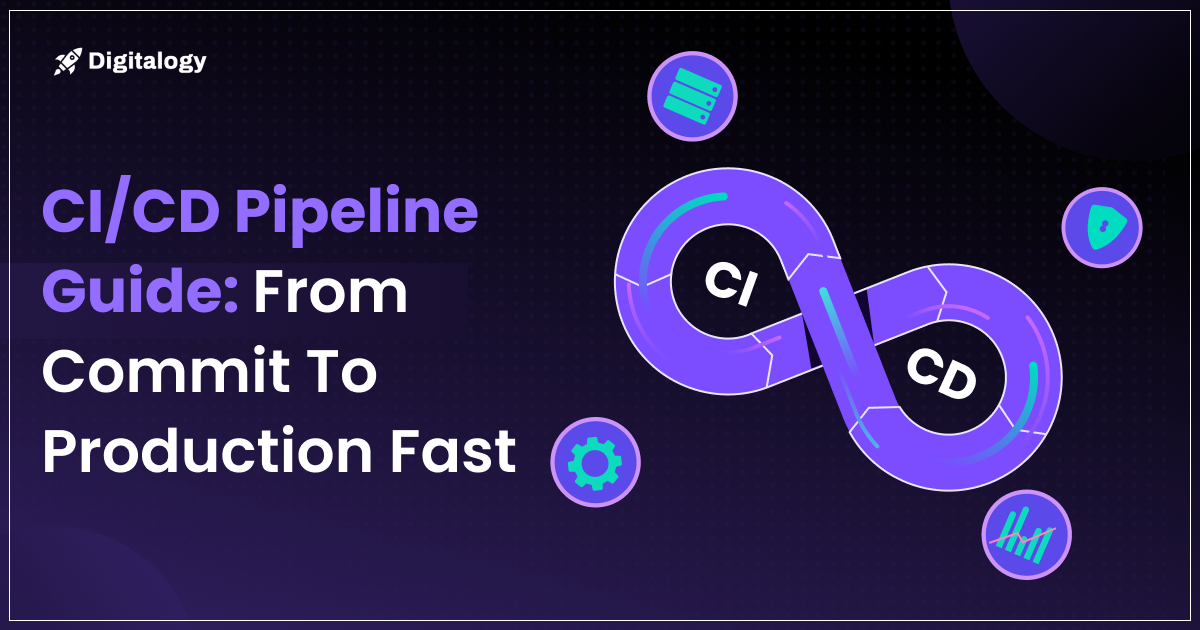Today we are going to have an in-depth analysis of DevOps Vs Agile along with the misconceptions that have been all around since their development and how these two interrelate.
DevOps is a methodology that automates the software development lifecycle whereas Agile is a process that leads the breaking down of projects for further monitoring.
Organizations use a blend of DevOps in Agile to pursue the software goal. The two methods complement each other and lead to productive results when used together.
Define DevOps
DevOps is an amalgamation of “Development” and “Operation”. It is an ideology that came into existence in 2007 and 2008 in opposition to the widening gap between the IT operations department and software developers.
The underlying reason behind DevOps’ existence is overcoming negative feedback and surprising outcomes by matching the velocity of software developments with operations.
Various DevOps Methodologies are as follows-:
- Scrum: Scrum is used to address concerns regarding the delivery of high-value products over a network.
- Kanban: Kanban is the method that is used by teams to avoid overburdening and ensure the smooth delivery of products. It is a useful method that allows teams to work consistently.
- Scaled Agile Framework: Scaled Agile framework is a broader set of protocols that offer assistance on issues during scaling.
- Lean Development: Lean is a combination of manufacturing principles and practices to alleviate software development experience that supports agile organizations. It combines manufacturing practices and principles to enhance the experience of software development and support agile organizations.
- Extreme Programming: Extreme Programming is a software development that alleviates software quality and interaction as per the customers’ needs. XP includes elements like programming in pairs or conducting reviews of codes and unit testing as time passes during which the problem is decoded.
Define Agile
Agile is a process that helps development teams by breaking projects into smaller chunks called sprints for a quicker software development process. The breaking of projects allows developers to closely monitor the process, identify the loopholes, and fix them in time.
The key methodologies are Scrum, Extreme Programming, Adaptive Software Development, Dynamic Software Development Method, Feature Driven Development, Kanban, and Behavior-Driven Development.
- Scrum: Scrum is a timebox that divides projects into cycles sparring over a couple of weeks called sprints.
- Extreme Programming: Extreme Programming focuses on teamwork and fostering interpersonal relationships and allows developers to monitor feedback regularly and enhance developer capability.
- Adaptive Software Development: Adaptive Software Development focuses on constant change, the collaboration between developers and customers, and adapting according to the changes in the business environment.
- Dynamic Software Development Method: The dynamic Software Development Method allows developers to design a framework of forthcoming software deliveries based on the feedback acquired through the systems.
- Feature-Driven Development: Future Development focuses on quicker deliveries and shorter iterations by organizing the team and programming the correct code.
- Kanban: The Kanban method was designed in response to Scrum for delivering software continuously in place of taking breaks. It believes in just in time (JIT) process and identifies loopholes and corrects them at the earliest.
- Behavior Driven Development: Behavior Driven Development was created to ensure that non-technical aspects including writing test scenarios and features are mentioned and requirements are communicated accurately.
How to Do Agile And DevOps Interrelate?
In this section, we are going to see how these two methodologies interrelate.
1. Business Productivity Enhancement
DevOps Vs Agile work towards a common goal of quicker outcomes and enhancing productivity. With that being said, Agile’s methodology in the software development process allows teams to concentrate on a single target and save time for others.
It allows the teams to manage accordingly. On the other hand, DevOps allows users to deliver quicker releases without bothering the complete process.
2. Lean Philosophies Adoption
Both interrelate on common ground when it comes to incorporating lean philosophies. Imbibing lean philosophies helps Agile Vs DevOps to manage team interactions and ensure a productive work environment.
Lean philosophies offer both Agile and DevOps a broader framework of principles that guide teams through software development experience.
3. The Collaboration Process
These two methodologies sustain themselves on teamwork and effective communication among software developers and operations teams.
They require team members to have open communication especially when it comes to sharing important information. The collaborative process also involves sharing and solving troubleshooting problems.
4. Sources for Powerful Partnerships
This aspect is a subset of the earlier one- the collaboration process. A strong collaborative process would require powerful partnerships among team members and vice versa.
As already mentioned earlier, DevOps in Agile rests on effective communication and sharing information.
5. Emphasis on Testing & Automation
These two work towards a common goal of achieving positive outcomes and bringing stability during the process. Both methodologies rely on testing regularly before operating any integrations.
Agile Vs DevOps are developed to work in fast-paced environments with complete quality assessments. Thus, they both rely on automation as the primary aspect that guarantees privacy and security in the process.
How Do Agile And DevOps Differ?
In this section, we are going to see DevOps vs Agile.
1. Cross-functionality vs Fragmentation
In the Agile development process, each member is designed to do all tasks so that the process is not hampered by the absence of a particular member. However, it happens when isolated groups come into operations and are not part of the same team.
In DevOps, every developer is required to perform the function that is required for the process to move forward. It speeds up the process and enhances the communication within the team.
2. Communication
Agile and DevOps have a clear-cut difference when it comes to their communication styles. Agile methods involve daily meetings which are informal and simple.
By simple and informal, it means that the communication is solely concerned with the progress and decoding of the problems that might hamper it.
Communication in Agile does not involve running by the documentation or any metrics. On the other side, DevOps is concerned with specific topics during communication and it is not daily.
3. Documentation
There is a difference between Agile and DevOps in terms of documentation. The agile method is more of informal communication, so it does not involve monitoring the meeting or recording its minutes.
DevOps method keeps track of meetings and involves proper documentation to acquire a deep understanding of software releases.
4. Automation
Automation is at the heart of the difference between these two methods. Agile does not involve automating processes as much as the DevOps method.
Automation forms the core of the DevOps method as it aims to simplify the process and enhance the efficiency that fetches the desired outcome.
5. Specialization
Agile offers equal opportunity to each team member. Agile, unlike DevOps, assumes that members of the scrum can carry out all types of operations. This would help in avoiding any problems or bottlenecks that hamper the complete process from operating.
DevOps, on the contrary, would allocate separate teams for development and operations. Although there is a defined separation between the two, however, the communication between the two teams is there.
6. Scheduling
Agile teams work in pre-defined short durations of time and they might last from weeks to a couple of months. These are called sprints. Developers following the agile approach are only concerned with the development of the software at the earliest.
DevOps is more concerned with the overall balancing of the system and ensuring reliability.
7. Team Size
Team size differs for Agile and DevOps. For Agile, it is a matter of small team size as fewer members on board mean faster efficiency.
This is different from DevOps as DevOps involves multiple teams with many members working on big projects. All teams work together and are required to have open communication.
What Is A Common Misconception About Agile And DevOps?
Let us look at some of the common misconceptions that people have about these two technologies:-
1. The common misconception about Agile and DevOps: is that they act as synonyms
Their existence has the same base, that is, ensuring the smooth functioning of the company along with the completion of goals. Agile is a developmental method that breaks the process into smaller units for better functioning.
In this way, the development process is closely monitored and troubleshooting issues are identified and fixed in time. DevOps is an organizational philosophy that believes in teamwork and open communication between different teams, especially teams of software developers and operations.
2. The common misconception about Agile and DevOps: is that technologies are to be purchased
To implement Agile and DevOps, companies have to bring cultural shifts and restructure their entire software development process.
For instance, companies can buy software tools and solutions that would help them achieve Agile, but it wouldn’t help unless the company’s culture is restructured with training, strategizing, and fluent communication.
Since DevOps is a philosophical term, each member of the company needs to understand its advantages, and the importance of collaboration, and teamwork. If implemented blatantly and without any system in place, there are chances of getting backfired.
3. The common misconception about Agile and DevOps: is that Agile is not required for DevOps
Any other approach can be implemented depending on the business, team size, anticipated goal, and other requirements. DevOps is a philosophy that ensures faster software delivery along with enhanced team communication. However, this does not mean it depends on Agile for its operation.
4. What is a common misconception about Agile and DevOps: is that DevOps can replace Agile
Agile DevOps are two independent methods that have the same purpose but different ways of working. Companies can implement the Agile method and once integrated well into the workflow, they can work on adopting DevOps principles.
Another way can be integrating all DevOps principles and practices first and then working on Agile. It is an undisputed fact that DevOps and Agile work best when they are used together. Hence, it would be wrong to say that one could replace the other.
What Will Happen If Agile and DevOps Are Merged?
As already stated, DevOps Vs Agile are beneficial to the company and are independent of each other. However, they work best when they are together ensuring timely delivery of software. The merging of Agile DevOps will enhance the mutual understanding between product managers, project owners, and scrum professionals.
Subsequently, the complete DevOps team has to be trained in planning and retrospections while handling sprints. Lastly, DevOps KPIs and metrics have to be assessed accordingly.
Conclusion
Let us wrap up, although there is no end to the debate of Agile vs. DevOps. To summarise, both models are contrasting when it comes to communication, automation, documentation, scheduling, and team size among others.
Having said that, both methodologies complement each other and ensure desired outcomes when used together. Both technologies shouldn’t be competitors but should be thought of as complementary. The purpose of the two is common which is ensuring that the entire development process is executed efficiently.
Let us know in the comments below if merging Agile and DevOps was beneficial for your business.

